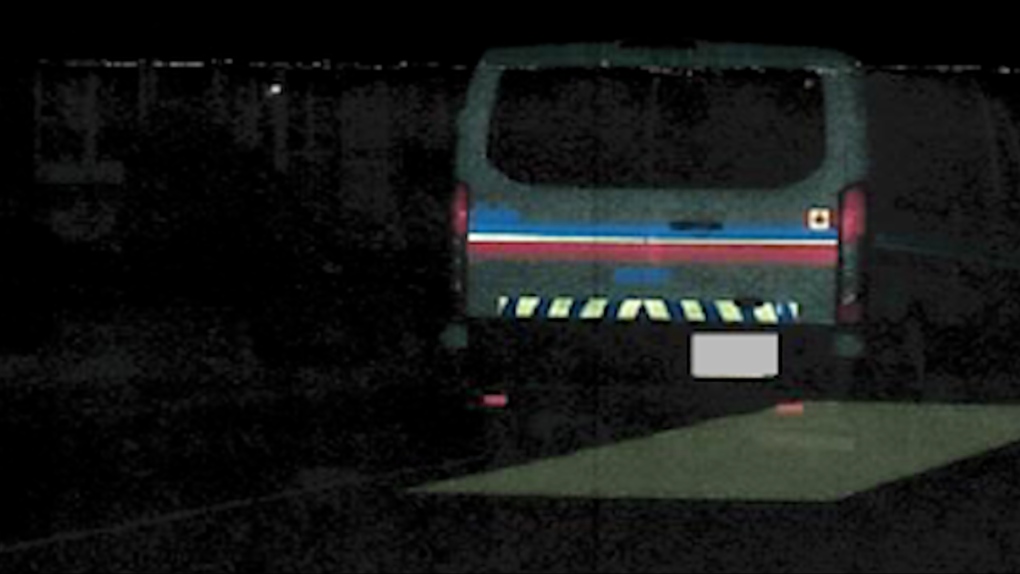Are hundreds of automated tickets issued to Toronto police missing?

Hundreds of automated speeding and red light tickets issued to the Toronto Police Service appear to be missing from police records and city databases, prompting several questions but no answers about the discrepancies uncovered in a CTV News investigation.
Records of tickets provided by the City of Toronto and the Toronto Police Service, in response to parallel freedom of information requests looking at a 26-month period, didn’t match, the documents showed, with city officials scrambling to explain why.
On the police side, 122 speeding tickets they provided to CTV News couldn’t be found in city records, including, perhaps ironically, a ticket issued to a vehicle with the TPS’s records management service, which was clocked at 44 km/h in a 30 km/h zone.
But, on the city side, records of 221 speeding tickets they provided to CTV News couldn’t be found in the documents provided by Toronto Police, along with 77 red light tickets, raising questions about how those tickets were processed at the TPS.
The mismatch raised some questions among Toronto drivers about whether it could portend a larger issue of keeping track of a wider selection of automated tickets.
“If they can’t find it, should they have to pay it?” wondered driver Jason McCafferty as he filled up at a gas station on Spadina. “But they’ll probably have to pay it. There’s no way – they’ll find it one day.”
TPS’s driving has been thrust into the spotlight after a dramatic crash involving a police cruiser on Fort York Boulevard over the weekend downed a traffic pole, with video showing pedestrians walking nearby at the time of the collision. Police said the driver lost control of the vehicle and his passenger had minor injuries.
In another video from Jan. 10, a police cruiser can be seen striking a pedestrian. She wasn’t injured, and in her complaint the police first refused to deem the interaction a collision, but after the video circulated widely, they said professional standards would investigate.
A cyclist was also seriously injured as a TPS vehicle turned on Bloor Street near Castle Frank station in early February.
Over 1,000 tickets or records of tickets to TPS vehicles were provided to CTV News after a two-year freedom of information battle. Some show what appear to be officers acting in the course of their duties and would be exempt, though others show parking enforcement vehicles and transport vehicles speeding, which do not typically respond to emergencies.
‘There has to be transparency’
In an interview, Toronto Councillor and Police Services Board member Jon Burnside said that the TPS fleet has over 1,800 vehicles, and given its sheer size, there would be issues from time to time.
“Police have a lot of vehicles out there, and people make mistakes,” said Burnside, who was an officer with the Toronto Police Service for 10 years.
However, he said that it’s important that the TPS deal with tickets and traffic safety concerns transparently to make sure it retains the confidence of the public.
“There has to be transparency and people have to feel confident in the police service that they’re not above the law,” he said.
Reached at a press conference Tuesday, Toronto Mayor Olivia Chow said she doesn’t direct the police, but hoped that Toronto’s police board would get the relevant information they need.
“I trust that the chief will want to make sure that every officer is accountable and that he would have a transparent process to tell the public and to council what happened,” Chow said.
Police officers are exempt from certain traffic rules when they are carrying out their duties, and so some tickets, when automatically given, can be dismissed when those situations apply, said Toronto Police spokesperson Stephanie Sayer.
If the officer is found to have broken traffic rules outside of those circumstances, the officer can face discipline, which can include docked pay.
“Our priority is to respond quickly to ensure the safety of communities and to be where the public needs us the most. If an investigation determines there was no justification for exceeding the speed limit, hours are deducted from the officer’s pay and it remains on their personnel file for two years,” Sayer said.
However, providing the public with information about exactly what happened with any given ticket is difficult, as “Section 95 of the Police Services Act requires the TPS to preserve secrecy with respect to this information unless a matter proceeds to the Police Disciplinary Tribunal,” she said.
City workers said they continue to investigate the discrepancy in the number of tickets.
“Every ASE ticket issued to a licence plate registered to the City of Toronto is paid by the City’s Fleet Services division to avoid late fees. The fees are then recovered from the respective City Division or Agency and they recover the fine from the driver responsible,” the spokesperson wrote.
“If Provincial Offences Officers are unable to determine that an emergency services vehicle qualifies for an exemption from the images captured by the ASE or red light camera systems (i.e. emergency lights activated, procession of emergency vehicles etc.), a charge will be laid and it will be up to the respective emergency services agency to provide the relevant details to the prosecution in order for the prosecutor to determine if the charge should be withdrawn. In the case of charges against a municipally owned vehicle, a prosecutor from another jurisdiction performs this review to ensure the integrity of the process.”
View original article here Source









